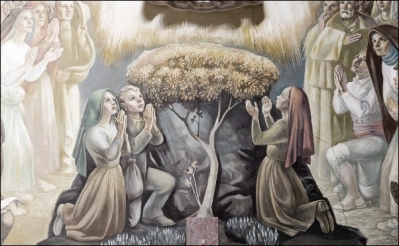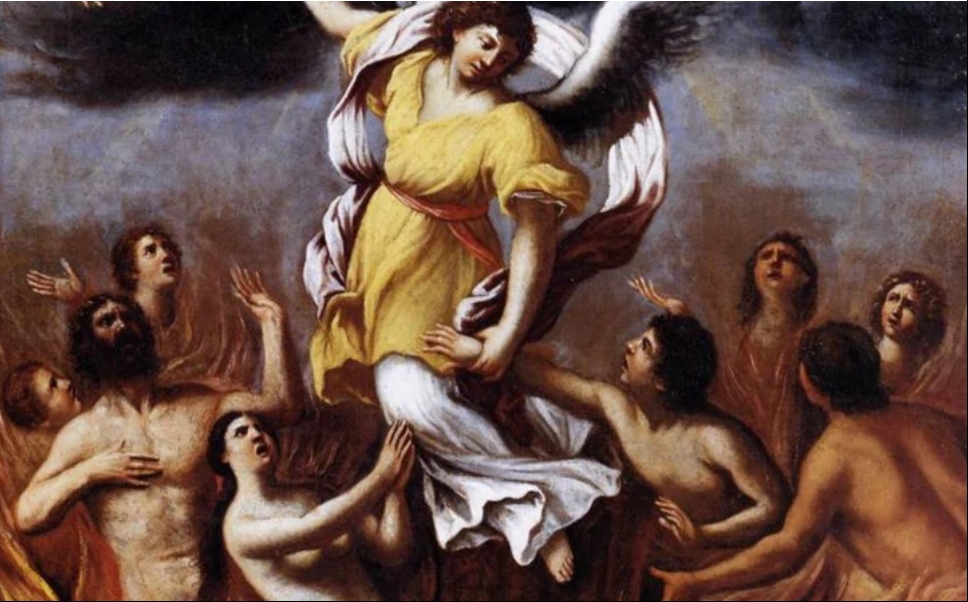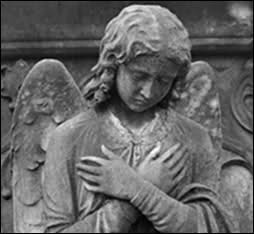Advice of St Philip Neri To His Spiritual Children
1. Blessed are you, my children, who have time to do good.
2. Now is not the time for sleep; for Paradise was not made for cowards.
3. Children, keep up a cheerful temper. I will have no scruples or melancholy: only avoid sin.
4. Avoid inordinate mirth, because this roots up the little good which has been acquired.
5. You must not leave your devout exercises; but if you wish to recreate yourselves with a walk, let these be fulfilled, and then go.
6. Do not care to attempt too many devotions; but undertake a few, and persevere in them.
7. You must not look to becoming saints in four days, because perfection is acquired with great labor, and by degrees.
8. Do not have a fancy to be masters of spiritual matters and convert others, but attend to regulating yourself.
9. Children, mortify yourselves in small things, that you may afterwards be able the more easily to mortify yourselves in great things.
10. To choose your vocation, time is required, advice, and prayer.
11. To preserve chastity, it is an excellent prescription to discover your thoughts immediately to your confessor.
12. Do not nourish your body delicately; fly bad companions and evil communication.
13. Avoid idleness, especially during the hours after dinner; because it is at that time that the devil commonly makes his fiercest attacks.
14. Do not touch each other familiarly, not even in jest nor have private conversations with each other.
15. Have no familiarity with women, although they may be allied to you by relationship.
16. Do not trust yourselves whatever may be your experience, but fly every occasion.
17. Go often to confession, at least every eight days; and go to communion according to the advice of your confessor.
18. Be devout to Mary, because this is the best means of obtaining the grace of God.
19. Before choosing a confessor, recommend yourselves in prayer to God; but having once chosen, do not readily change without just cause.
20. When at confession, tell your worst sins first, that the devil may not tempt you to end by hiding them.
21. Take counsel always of your spiritual father, and recommend yourselves to the prayers of all.
22. Give yourselves always, and in all things, into the hands of your superiors; because obedience is a compendious way to acquire perfection.
23. Pray continually to the Lord, that He may grant you the gift of perseverance.
24. Endeavor to have God always before your eyes.
25. Never excuse yourselves when corrected; and keep yourselves from saying any thing in your own praise, even in jest.
26. Read, O my children, the lives of the Saints; hear sermons; and do not fail to practice the prayers and other exercises of the congregation; because they are very pleasing to the Divine majesty.
Children, in order not to fall into sin, keep profoundly engraved in your memories the three warnings given by a holy hermit to certain youths, and act according to them faithfully.
1st Warning. Fly the occasions of sin
2nd Warning. Fly the occasions of sin.
3rd Warning. Fly the occasions of sin.
Fly quickly, fly far, fly always.
Children, do you really desire to be saved! Then ever keep,
First, eternity in mind;
Secondly, God in your heart;
Thirdly, the world under your lee.
“This do and thou shalt live.” ( Lk:10:28)
Gate Of Heaven: Way Of The Child Of Mary
A Manual Of Prayers And Instructions,
Compiled From Approved Sources
For The Use Of Young Persons
(1879)
Sacrament of Penance -Change of Mind and Heart and Life
“To sin is not so great an evil as “to persevere in sinning. To sin is an unhappy consequence flowing from the frailty of man, and the corruption of human nature; but a perseverance in sin is truly diabolical, and merits the fatal punishment inflicted on devils.”
St. John Chrysostom
In Baptism, when it is duly received, all sin and its penalties are remitted. For those who have never afterwards been guilty of mortal sin this Sacrament would be sufficient. But with most of us, and especially with those who were baptized as infants, post-baptismal sin is both frequent and often most serious.
Grievous, or mortal sin cuts the soul off from God, destroys all grace, and renders the soul displeasing to God; and no works done in this state can be acceptable to Him. Since this is so, it is evident that the great majority of Christians would be lost through their forfeiture of baptismal grace if no remedy were provided. For the Sacrament of the Holy Eucharist is efficacious only in souls that are free from mortal sin, and therefore no benefit can be obtained from it by those who have lost the first grace. On this account our Blessed Lord, of His infinite love, has instituted in His Church the Sacrament of Penance as the means whereby all sin committed after Baptism may be remitted to those who are penitent.
Penitence, repentance, or penance (for the three words indicate one and the same thing) is the translation of the Greek word metanoia, which signifies a change of mind and heart and life, manifested by some external act. Penance is both a virtue and a Sacrament.
As a virtue it has existed since the time of Adam, for from the beginning of the world the virtue of penitence has worked among men. It is an interior disposition of the soul towards God, and from the beginning of the world the Holy Ghost, Whose office it is to “convince the world of sin” (S. John xvi. 8), has convinced sinners of their transgressions, converted them to penitence, and through penitence has made them Saints.
But while this virtue of penitence works also in the Christian Church, our Blessed Lord has added to it a Sacrament. He has taken the penitence which was working in the world before His Advent, and for us Christians has incorporated it in a visible sign by which He communicates forgiveness of sins, and the grace of penitence to those who seek it rightly.
This He did on that most solemn occasion when He first appeared to His assembled Apostles after His Resurrection. So desirous was He to impart to His Church this great gift by which man might be loosed from sin, that immediately after He had won the power of Absolution for the Church by His Death and Resurrection He bestowed it upon her. He had promised the gift before His Passion, when He said, ” Verily I say unto you, Whatsoever ye shall bind on earth shall be bound in heaven: and whatsoever ye shall loose on earth shall be loosed in heaven ” (S. Matt, xviii. 18). Then, having made satisfaction for the sin of all the world, He imparted the power of Absolution to His Apostles when He breathed on them, and said unto them, ” Receive ye the Holy Ghost: whose so ever sins ye remit, they are remitted unto them; and whose so ever sins ye retain, they are retained ” (S. John xx. 22, 23). A safeguard against self deceit regarding one’s spiritual state.
Thus we see that on the first Easter night Christ instituted the Sacrament of Penance, in order that men might have something more than their self-assurance on which to depend for the hope of Absolution. The Pharisee in the Temple said, “God, I thank Thee that I am not as other men are,” that is, he absolved himself. But that absolution was not ratified in Heaven. So it is with many now; they absolve themselves, they forget their sins and constantly deceive themselves with the idea that God also forgets them. No state can be more delusive or more fatal; and it is to guard us against this danger that our Lord instituted a Sacrament in which to assure us by a judicial act that we are absolved in the name and by the power of Jesus Christ, by one who is His authorized representative.
Catholic Faith and Practice – Volume 1
Alfred Garnett Mortimer – 1897














































